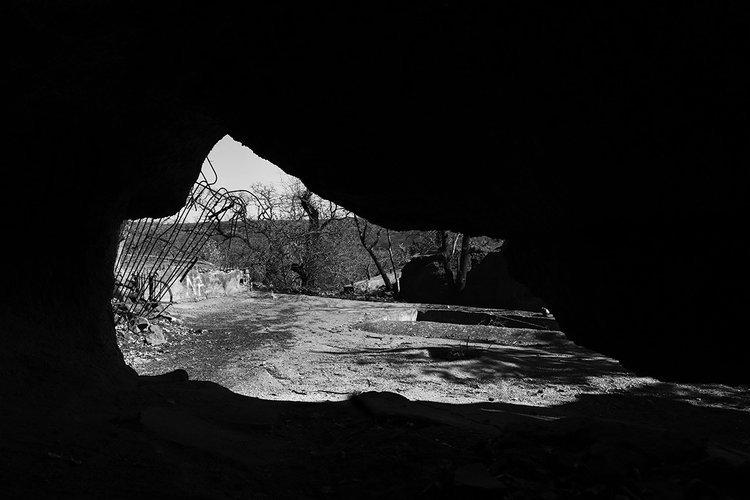“This world is rotten, and those who are making it rot deserve to die. Someone has to do it, so why not me? Even if it means sacrificing my own mind and soul, it’s worth it. Because the world… can’t go on like this.” – Light Yagami
In this undeniable superhero-inflated universe, we so often glorify the best stories as those featuring magnificent, villain fighting characters with flaws we can latch onto. However, Tetsurō Araki’s anime “Death Note,” based on creative geniuses Tsugumi Ohba and Takeshi Obata’s Japanese manga series, gives this overused protagonist trope a well-deserved heart attack, dropping in our laps a morally ambiguous, anti-hero who takes our rotten justice system head on. It’s not often that a television series –heck, especially an animated series – falls into our binge radar with a villain/antihero as the main character… and on top of that it is one that executes with such an intellectual flair that has earned itself a cult following.
“Death Note” fulfills its promise of a brilliantly crafted, intellectually demented hero –the addictive mastery of intense stare downs, stone cold psychoanalyses and chest-gripping acts in the name of justice all wrapped into a refreshingly original.
Rule number one: The human whose name is written in this note shall die. In the world of “Death Note,” high school student and prodigy Light Yagami – who abhors the deteriorating state of the world – takes this rule to heart after he stumbles across the deadly notebook (intentionally dropped by the equally bored and disillusioned Shinigami Ryuk). After successfully killing someone – a criminal, mind you – following his experiment with the Death Note, Light decides to snuff out all criminals in order to build a new world where one, crime does not exist and two, people worship him as the god of this new utopia. However, like all dreams, it’s not that easy…even for a diabolical genius.
“Death Note” follows Light – or “Kira,” the name the world knows him by – as he evades the suspicion of law enforcement while committing his acts of justice and squares off against the greatest detective in the world: a disheveled and eccentric man only known by the name “L.”
Notes of death. Devilishly smart characters. Justice (or lack thereof). This anime puts it all on the table through praise-worthy, carefully-crafted storytelling that leaves its veteran fans wanting more and its first timers on the edge of their seats. From a simple game of tennis to a sweat-trickling prisoner exchange, “Death Note” is a never ending psychological game of “he knows that I know that he knows that I know that he knows.” While the supernatural elements to this crime thriller brought an unorthodox take on the idea of vigilante justice, the analytical and moral ambiguity is clearly responsible for the anime’s everlasting social commentary and success.
While the supernatural themes in this crime thriller might be a deal breaker for some, in light of the cloning storylines trending today, “Death Note” is a message sent front originality heaven. Vigilante justice is nothing new, but the soul-selling direction this anime takes with such an overused occupation in television is entertaining to see play out and leaves a delightfully bittersweet taste in the mouths of those who watch. Considering the imprint of moral ambiguity and the story’s awareness of its viewers’ expectations – and its ability to screw with their heads – “Death Note” is far from a forgettable “pseudo-intelligent” story with tiresome characters. With this in mind, I appreciate Ohba and Obata’s stimulating, thought-provoking narrative and Araki’s talent for breathing authenticity into it.
However, depending on the person, this psychological crime show turned thriller might lose its wow factor in the last 11 episodes because – no spoilers – a dramatic change in character dynamics transforms “Death Note” into a more fast paced, tension-oriented tale instead of sticking to its more eerily slow-paced, supernatural and analytical roots. While I understand that the sudden change in tone and character behaviors could be seen as disappointing to those comparing the last arc to the rest of the anime, I found myself in a constant state of “embraced anxiety” until the very fanatical end. You will shake. You will sweat. You might even tear up a bit. In the end, you will still love every agonizing moment.
Regardless of “Death Note’s” unique and moral-scrambling storyline, this anime is whole-hearteningly defined by – and adored because – of its psychotic protagonist as he commits himself to the task of creating the perfect world by killing those who pollute it and dare to get in his way of implementing god-like justice.
What makes Light Yagami such an engrossing character is his moral unpredictability, not his intelligence. While his cunning intelligence in outsmarting others (“Fight every battle everywhere, always, in your mind. Everyone is your enemy, everyone is your friend”) which is breathtaking to behold, his willingness to go to war with the flawed justice system and crime-brimming world mirrors the reality of our moral compass. Despite his universe-inflated ego, Light’s distorted sense of justice is in alignment with most law-abiding citizens who would rather – in secret – have no problem with the eradication of the scum of the Earth, those who make it harder on the good, the weak and the suffering. Light Yagami is us. Watching his plans for a utopia slowly come to fruition is glorious at its best (and nail-biting at its worst) for those who were captivated by his self-sacrificing, heart-pounding speech in episode one. Light gives you more than enough reasons to watch him destroy those he deems evil and to watch him at his worst.
While Light dabbles in charisma and psychopathic tendencies in pursuit of true justice, L’s hermit-esque nature, rough appearance and unorthodox actions in the name of his justice immediately labels this detective as a highly respected and likeable enemy of Kira and character foil to Light Yagami. In spite of the seriousness in catching Kira, most of “Death Note’s” emotional moments happen because of L’s odd habits (such as to sit like a frog, stack objects and invade personal space) and his psychoanalytic abilities that rival Light’s. Their authentic complexity as people – not just characters in a story – and their similarities to our own shady moral code explains why audiences across the board (including myself) care deeply for L and Light’s well-being as the plot thickens and more and more people drop like flies.
Another brilliant aspect of “Death Note” is responsible for enhancing the already groundbreaking narrative with unforgettable characters into an obsessive, re-watchable masterpiece – the score. “Death Note” would not be as successful as it is without the genius of composers Yoshihisa Hirano and Hideki Taniuchi, who blessed each justice-granting, supernatural and chair-gripping moment a time to shine and be recognized by the audience. The two most note-worthy tracks being the enlightenment-toned “Kyrie” and the well-known, killing machine of a track “Low of Solipsism” evoke an uncontrollable and unmatched feeling of justifiable corruption – a beautifully crafted combination of sound that uplifts “Death Note” into its own category of mature, irresistible content.
An unorthodox narrative – check. A justifiable and equally insane genius main character– check. The supernatural – check. Moral questioning moments– check. On point animation – check. And an obsessively catchy soundtrack – check. “Death Note” is the byproduct of top tier storytelling – masterfully using music, color, and dialogue to transcend even the greatest of narratives. From the beginning to the end, “Death Note” will take your heart captive – and viewers will enjoy every second of its manipulations. Morality and social expectations will be questioned, deconstructed and reconstructed with a frighteningly logical and realistic flair that keeps this supernatural crime thriller permanently grounded and relatable to newcomers and its fans.
To those not experienced in subtitles, I recommend watching the anime in English. Unlike most cringe-worthy English-translated anime, “Death Note’s” English voice actors are excellent.
“Death Note” will satisfy anyone looking for a thought-provoking piece of work with strong characters and atypical supernatural elements – no vampires or werewolves, thank you. Its mature content – no breast and panty shots included – will debunk any assumption that all anime is childish. I recommend “Death Note” to all.





